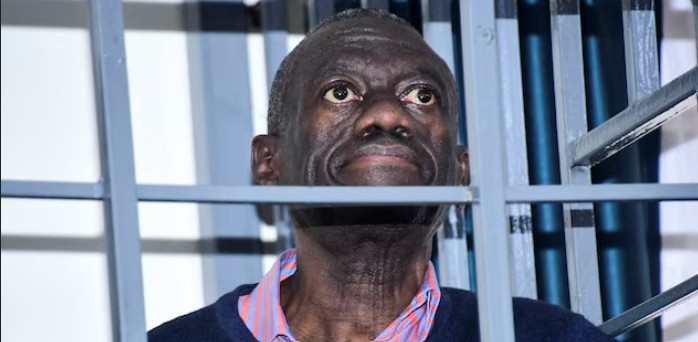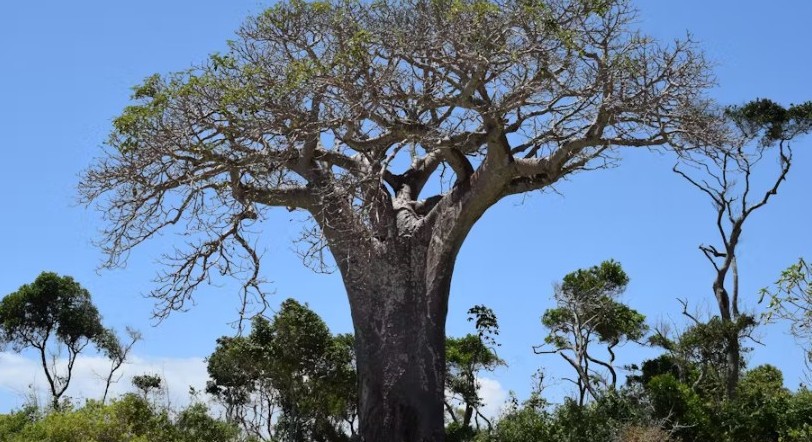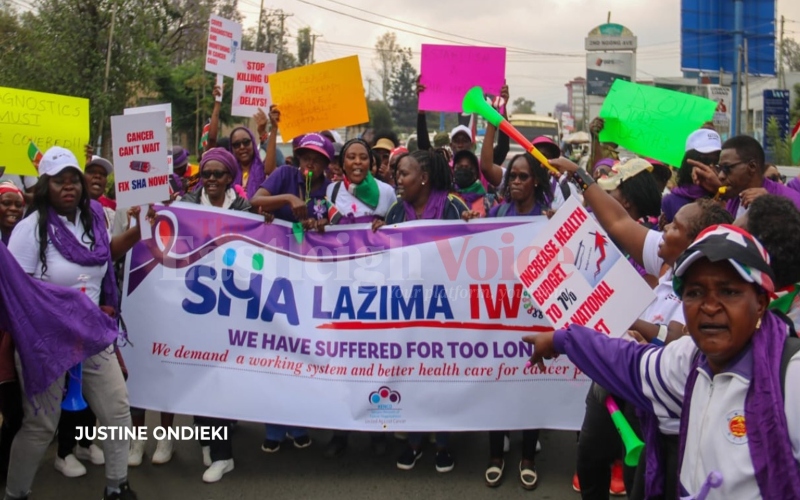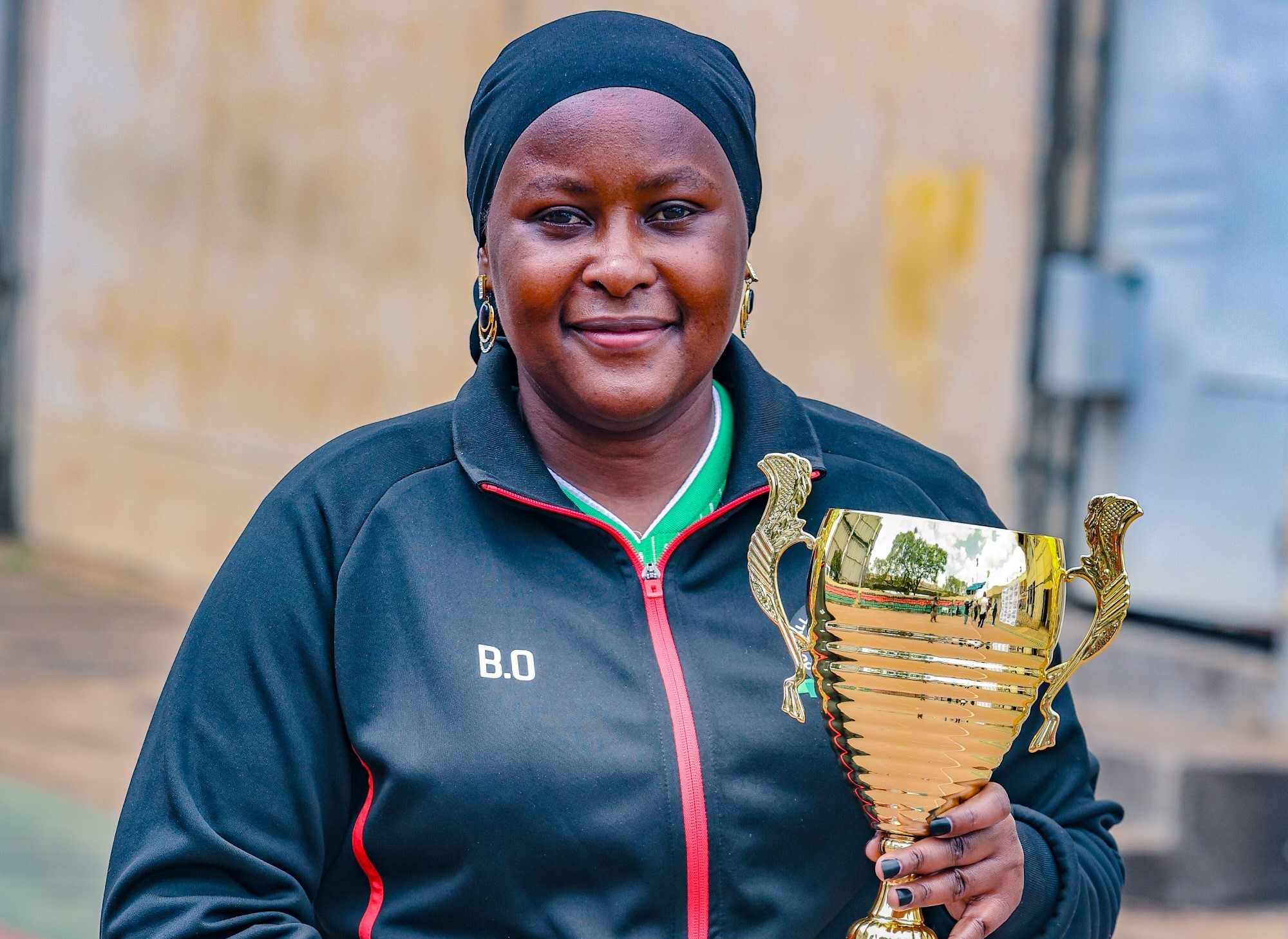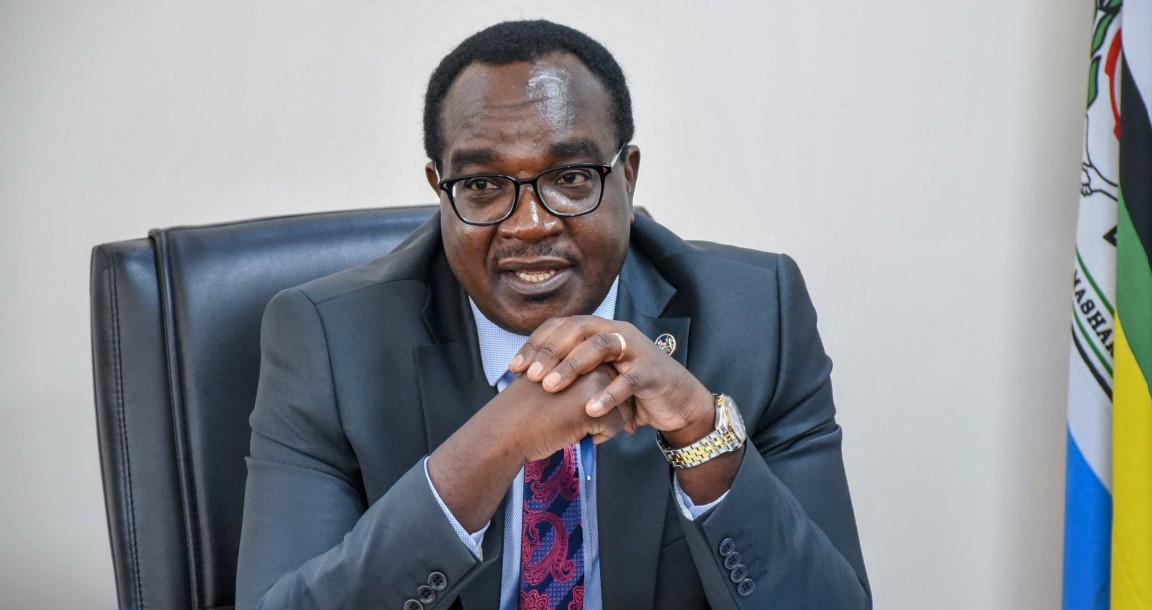Mixed reactions as Kenya marks 61st Madaraka Day celebrations

While the day holds historical significance, the varied reactions from Kenyans highlight the complex socio-economic landscape that continues to influence their everyday lives.
Bungoma County was the epicentre of Kenya's 61st Madaraka Day celebrations on June 1, with thousands gathering to commemorate the day Kenya attained self-governance in 1963.
President William Ruto led the festivities, promising to enhance agricultural productivity, particularly focusing on cane, millet, sorghum, cotton, and coffee, which are critical to Kenya's economy, as agriculture contributes the largest share of the gross domestic product (GDP).
More To Read
- Oburu’s DP position condition to Ruto unsettles Kindiki’s base
- Ruto admits Kenya is rationing electricity, says at least Sh1.2 trillion needed to boost capacity
- Ruto amplifies Africa’s voice, calls for justice and inclusion at Doha summit
- President Ruto urges global unity to fight poverty, inequality at Doha summit
- Kenyans to replace lost IDs for free as Government gazettes six-month waiver on fees charged
- Raila Odinga mastered the art of political compromise for the good of Kenya
However, the sentiment from Kenyans reflects a mixed bag of opinions about the significance of Madaraka Day amid current economic challenges. Many Kenyans voiced their concerns over the high cost of living, overshadowing the festive spirit of the day.
While the day holds historical significance, the varied reactions from Kenyans highlight the complex socio-economic landscape that continues to influence their everyday lives.
John Okemwa, a hawker in Nairobi's Central Business District, was indifferent to the celebrations.
"Today is a normal day just like any other. I opened my shop just like any other day and sold my wares. We are engulfed in our daily activities to even remember such an iconic day," Okemwa says. He nostalgically noted that life was easier and education more accessible in the past, contrasting with the struggles of the present.
Athunus Mutuku, an ice cream vendor, shared a similar sentiment, expressing discontent with the socioeconomic disparities in the country.
"It is only the population increasing daily and the rich getting richer while the poor getting poorer. There is still no consideration or measures put up for us and the kind of life we live," Mutuku lamented. He highlighted the daily struggle to make ends meet, casting doubt on any significant progress.
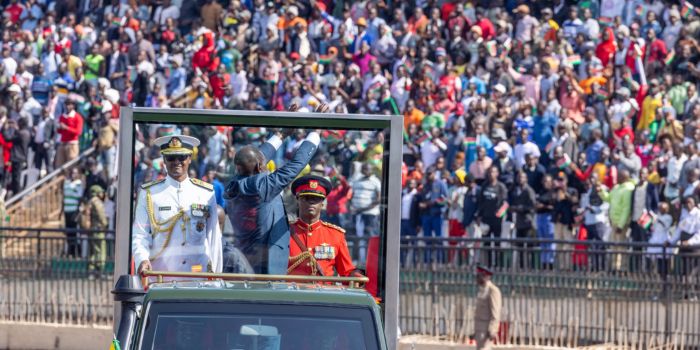 President William Ruto waves at the public after arriving for the 61st Madaraka Day fete at the Masinde Muliro Stadium in Bungoma County on June 1, 2024. (Photo: PCS)
President William Ruto waves at the public after arriving for the 61st Madaraka Day fete at the Masinde Muliro Stadium in Bungoma County on June 1, 2024. (Photo: PCS)
In contrast, Joseph Wachira, a pastor and businessman, saw the day as a marker of Kenya's remarkable journey.
"Kenya is the chosen nation of God and most countries look up to us. We started at the foundation stage and now we are at the perfection stage where we get to enjoy a lot of freedom and changing times. We are heading in the right direction and we pray for continued blessings throughout," Wachira stated.
Rachel Katembo, a street food vendor, acknowledged the milestones achieved but expressed concern over the economic impact of moving the celebrations outside Nairobi.
"We used to parade our business as early as 5 am at the functions and earned a month's worth of money. I am also glad for the people in the other counties who are getting the same opportunity," Katembo said, illustrating the double-edged sword of decentralising the celebrations.
As Kenyans continue to complain about the high cost of living, the prices of some food commodities and electricity increased between April and May 2024, pushing the inflation level to 5.1 per cent, from the 5 per cent record in April.
Data by the Kenya National Bureau of Statistics (KNBS) shows the prices of spinach, kale (sukuma wiki), tomatoes, and Irish potatoes increased by 18.2 per cent, 15 per cent, 14 per cent, and 6.2 per cent, respectively
President Ruto also addressed the need for food security and announced the government's decision to write off Sh110 billion worth of sugar factory debts accumulated over 40 years.
He introduced a new leasing model aimed at ensuring prompt payments and annual bonuses to cane farmers, along with timely wages for factory workers, aligning their treatment with that of growers of other crops.
Madaraka Day marks the day in 1963 when Kenya attained internal self-rule from the British colonial government, preceding full independence on December 12, 1963.
The term "Madaraka" is derived from Swahili, meaning "freedom." This day is a significant milestone in Kenya's history, symbolising the nation's journey towards sovereignty and self-determination.
Top Stories Today



